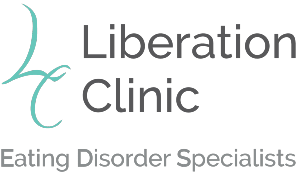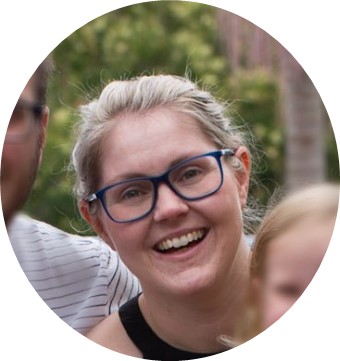Individual Consultations
Maybe you've had a bad experience with a dietitian in the past...
Unfortunately, a typical dietetic degree spends just a day or two on eating disorders, which is obviously TOTALLY inadequate to teach us how to adequately and safely treat such a complex set of conditions with their intertwining physical, psychological, and social components. To be honest, when I (Director, Emma) first started in private practice in 2008, I had NO IDEA how inadequate my knowledge in eating disorders was! Yet this area of practice kept calling me, probably because of my own disordered experiences with food growing up. Unfortunately a pretty common story among our profession, if you look at the stats!
It's taken literally thousands of hours of surrounding myself with eating disorder specific books, research, conferences, webinars, podcasts, as well as all of the extra formal training and courses, to feel like I can truly consider myself an 'eating disorder dietitian', (and of course that dedication to learning & listening to the voices and stories of those with eating disorders will continue for the rest of my career).
The specialist dietitian difference
So what all this specialist training and experience means for you, is that you'll get
- help with the skills that matter most for eating disorder recovery, like developing flexibility, not more food rules
- as much control as you feel ready/ comfortable with when discussing what you'll plan to eat. There are no inflexible or unrealistic meal plans, and if you don't need or want a meal plan, you don't even have to have one!
- your actual food preferences will be taken into account. There are a thousand and one nutritionally complete ways to eat, so I know we can find one together that suits you!
- help with the practicalities of addressing disordered behaviours & food/ body/ movement thoughts. It's no good coming up with a brilliant plan in my office, if we don't also have a plan for dealing with the thoughts & urges the next day at home.
- help with the nitty gritty of keeping you medically stable. This is super important for people who might be restricting food or purging at ALL weights, by the way. I'll keep in touch with your GP, look over your blood tests (and explain them if you want me to, I know that sometimes your doctor just doesn't have the time to go into detail), and talk with you about things like vitamin and mineral supplements that you might need to stay out of the danger zone.
- Optional use of extra eating disorder specific services like use of the Recovery Record app to track food, exercise & behaviours; the option of low cost meal support sessions- ask at your first visit; and dedicated eating disorder recovery group programs.
What to expect at your first consultation:
Getting to know you.
The most important thing for me to do in your initial session is to learn about YOU! Your goals, your past experiences with food & how you feel about your body, and the unique challenges relating to your life. Because this part is so important, most of your first consultation will be spent telling me about yourself, and we likely won’t do very much detailed problem-solving or skill building in this session (however I always try to leave you with something little to start working on). Remember, we need a detailed enough map to work out which roads will get us to our destination 🙂
Some of the specific questions I’ll need to ask include:
- Relevant details of your medical history, mental health, and your family’s medical history.
- Results of any recent blood tests, ECGs, bone density scans, etc.
- Medications you’re currently taking, along with any nutritional supplements.
- Details of any past treatment/ hospital admissions you've had relating to your eating disorder.
- Details of your usual eating pattern (you don’t need to record any details before the session).
- Details of your current eating disorder related behaviours, like what/how/when you restrict, details about vomiting or laxative use, details about your exercise pattern, etc. Please know that I understand these things can be difficult to talk about, especially if I'm the first person you've ever discussed them with. But I talk about these things every work day, you won't shock me, and I'm not judging you 🙂
How often will we meet?
In most circumstances, we'll start out meeting weekly. Then as you make progress with dealing with urges and reducing frequency of behaviours, we'll drop the frequency to fortnightly. Then when behaviours are infrequent , you're feeling more confident, and we're mostly working on normalising eating (eg learning how to recognise & respond to appetite cues again), I'll likely only see you every 3 or 4 weeks.
Can my partner come?
Yes! You’re welcome to bring a parent, partner or carer, or any other support person if you’d like to. And if you’re under 16, you’ll need to bring a parent or carer to sign forms, but it’s ok to chat with me in private if you prefer.
Ready to book?
Just click the button below, or call 8518 6066 to speak to reception.
Not sure if we're right for you yet?
The Recovery Inspo newsletter is the perfect way to get an insight into what we do, and how we do it. It's a great way to see whether you like our approach, while you're considering booking in with us or joining a group program. And hopefully, whether you decide to work with us or not, we'll help to keep you that little bit more motivated to keep pushing towards recovery!


